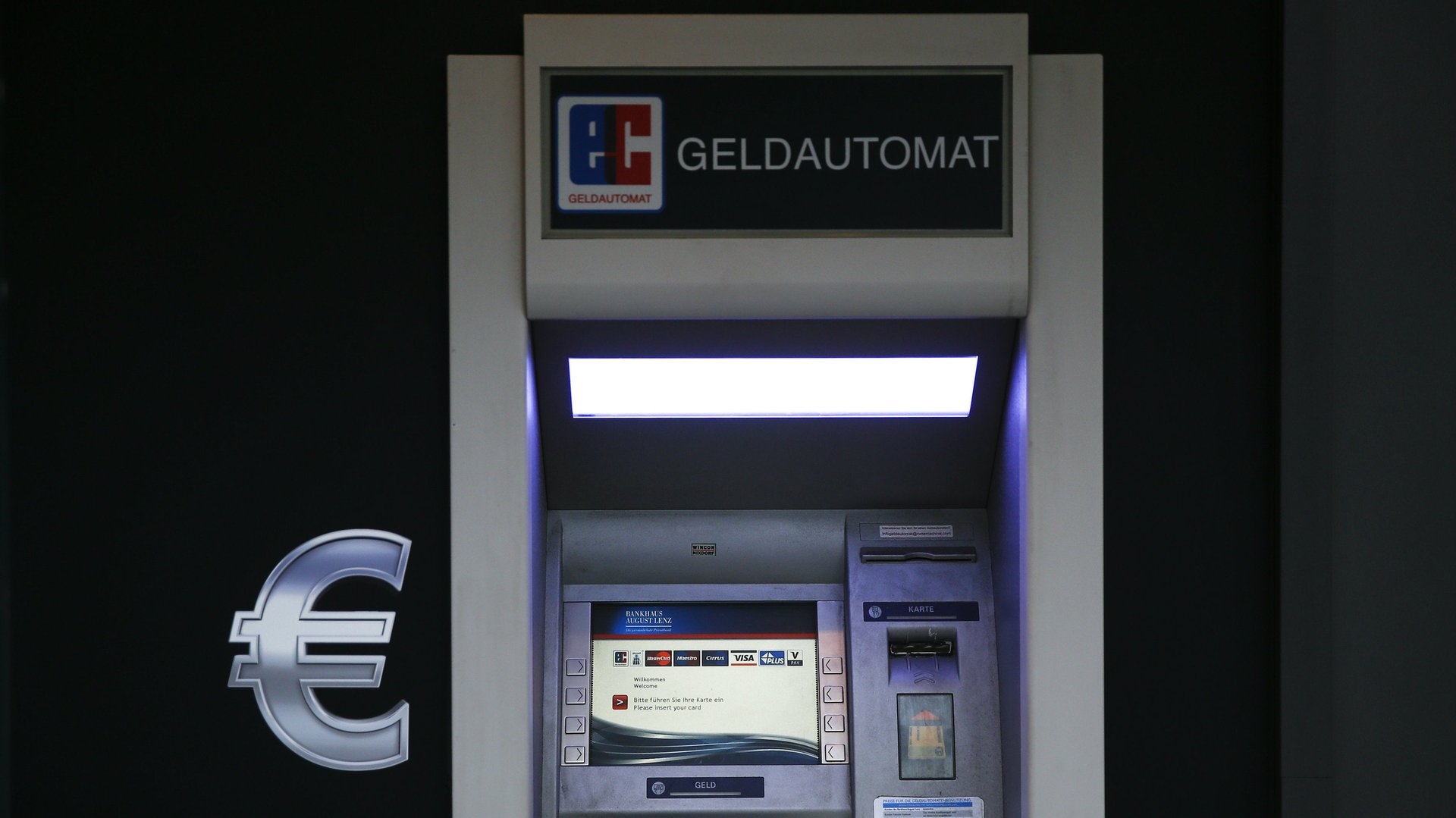The only way to make Germans go cashless is an ATM worker strike
Germans are famously stodgy about using cash, even as digital payments catch on in other parts of the world. But a strike by cash-transport handlers could accomplish what the likes of Visa and Apple Pay haven’t been able to—disrupt German spenders’ and their old-fashioned paper money.


Germans are famously stodgy about using cash, even as digital payments catch on in other parts of the world. But a strike by cash-transport handlers could accomplish what the likes of Visa and Apple Pay haven’t been able to—disrupt German spenders’ and their old-fashioned paper money.
Ver.di, the United Services Trade Union, called on 12,000 cash-transport workers to strike today (Jan. 2). The union is demanding a €1.50 ($1.72) hourly wage increase, amounting to about €250 per month, and equalization of wages for staff across East and West Germany.
Decades after reunification in 1990, former East German states have lagged behind their western counterparts in terms of economic development by some measures, for instance working more hours and getting paid less. The union said gross monthly salaries for money-handlers and drivers are around €2,200 to €2,900 ($2,500 to $3,300) in the west, compared with €1,800 to €2,400 ($2050 to $2,700) in the east.
Cash is the most popular way of paying for things in Germany, though, even in a country scarred by trillion-fold hyperinflation after World War I, it’s gradually slipping. Some 74% of transactions were made using coins and banknotes in 2017, down from about 79% three years earlier, according to a Bundesbank study. Physical currency is used to settle 96% of smaller payment amounts of up to €5.
The number of yearly cash withdrawals per person in Germany has been stable in the past decade:
That makes Germany a lucrative opportunity for cash handling and security companies that protect physical money, even as cash-usage dries up in places like Sweden. Loomis, a security company listed on Nasdaq’s Stockholm stock exchange, acquired Essen, Germany-based cash handler KGW last year.
Germany’s dependence on notes and coins makes it particularly vulnerable to a cash-handler strike. For now, the work stoppage hasn’t had major consequences, as bank machines were filled with money yesterday, according to a Reuters report, citing the BDGW employers’ association. While the disruption is inconvenient and potentially expensive for companies, services are expected to continue.
The union will extend the work stoppage if negotiations aren’t successful, Ver.di negotiator Arno Peukes said in a statement. Cash-handlers also went on strike in 2015, when the union reportedly pushed for better high-risk insurance. Some ATMs ran out of cash during that walkout, while a German bank asked customers to request cash from the lender’s counters.
That said, the union could be slowly losing its leverage, thanks to debit cards rather than management policies. For the first time, the proportion of cash in overall turnover in Germany fell below 50% in 2017.